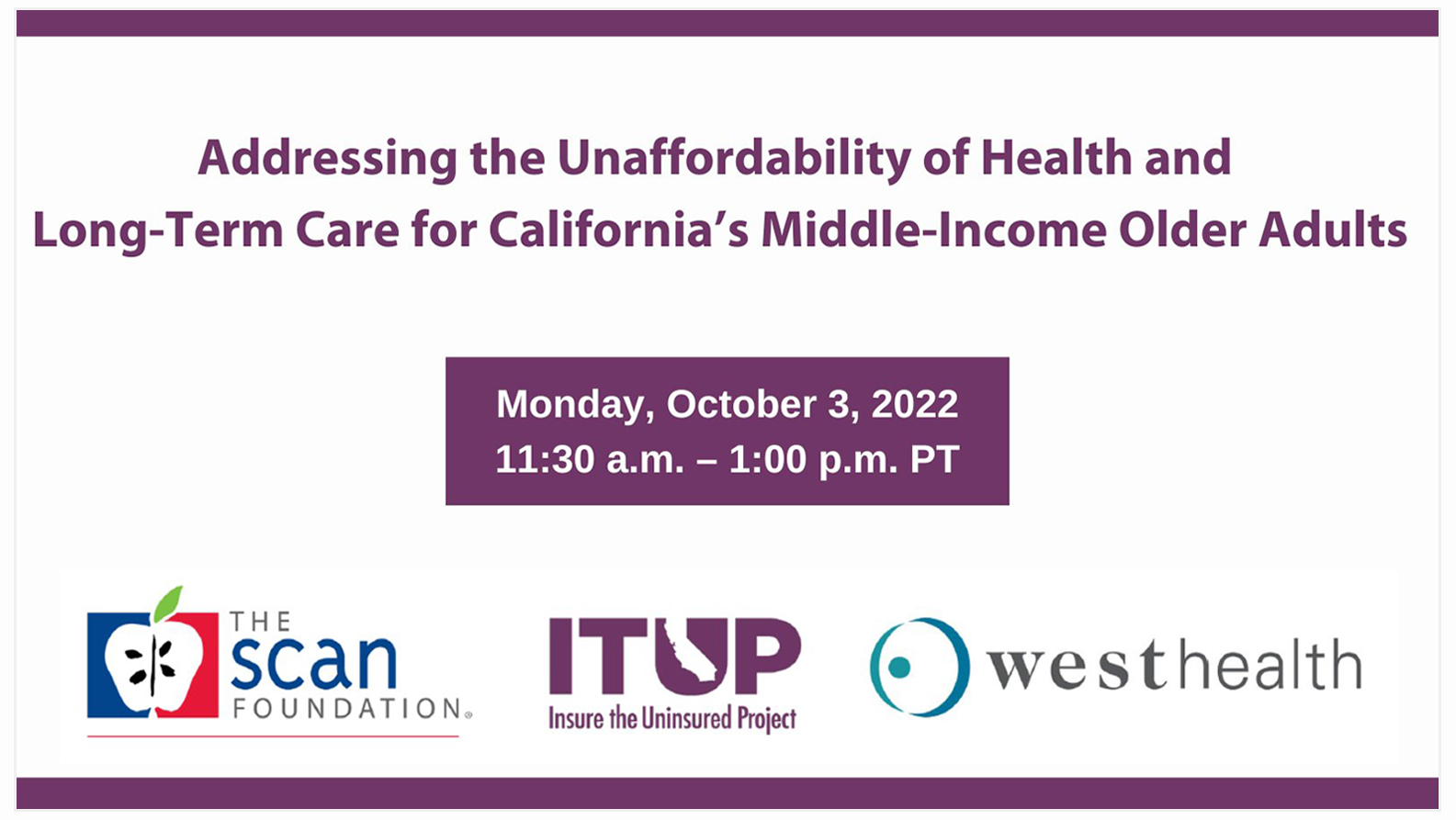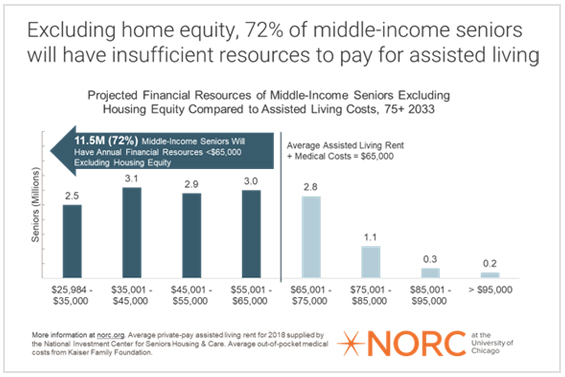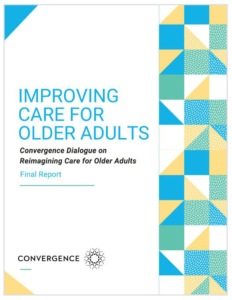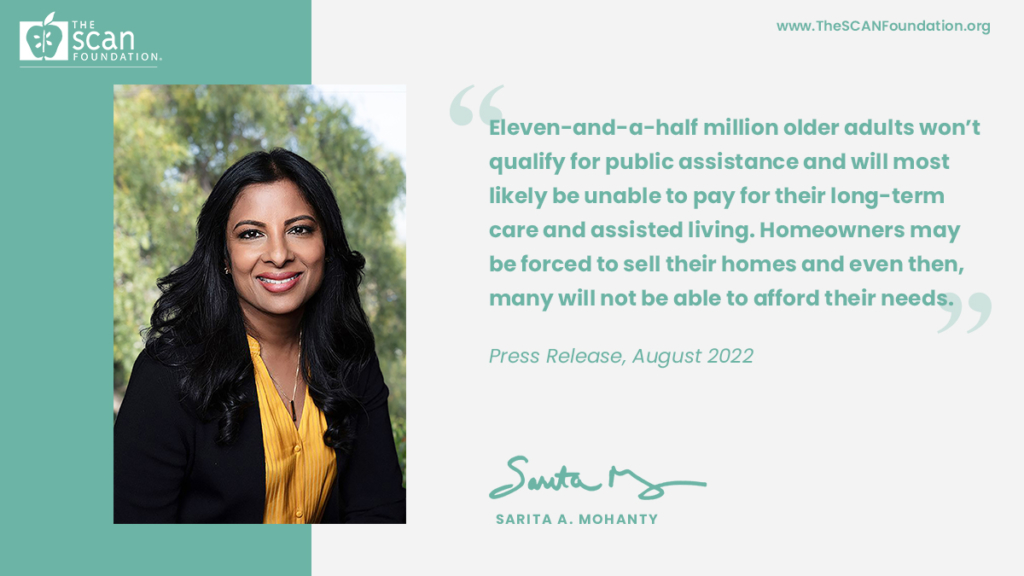The “forgotten middle” represents more than 11 million older adults who will need health care and housing in the next 10 years but won’t qualify for Medicaid to help alleviate increasing costs.
Last month, we hosted a virtual briefing on the urgent need for action. Sarita A. Mohanty, President and CEO of The SCAN Foundation, and Caroline Pearson, Executive Director at the Peterson Center on Healthcare, discussed the intersections of housing insecurity, health care access and affordability, and community services. Watch the recording.


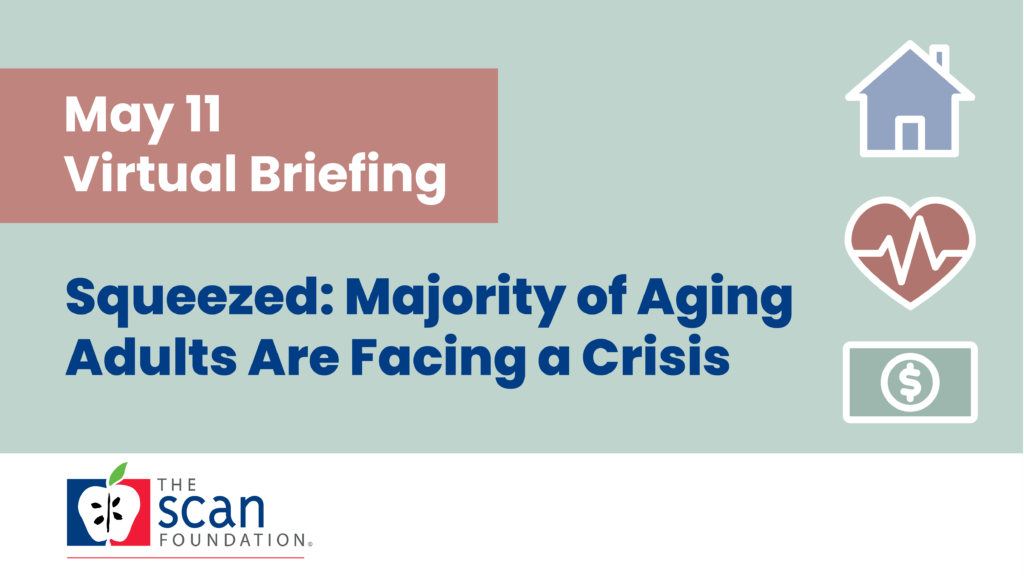

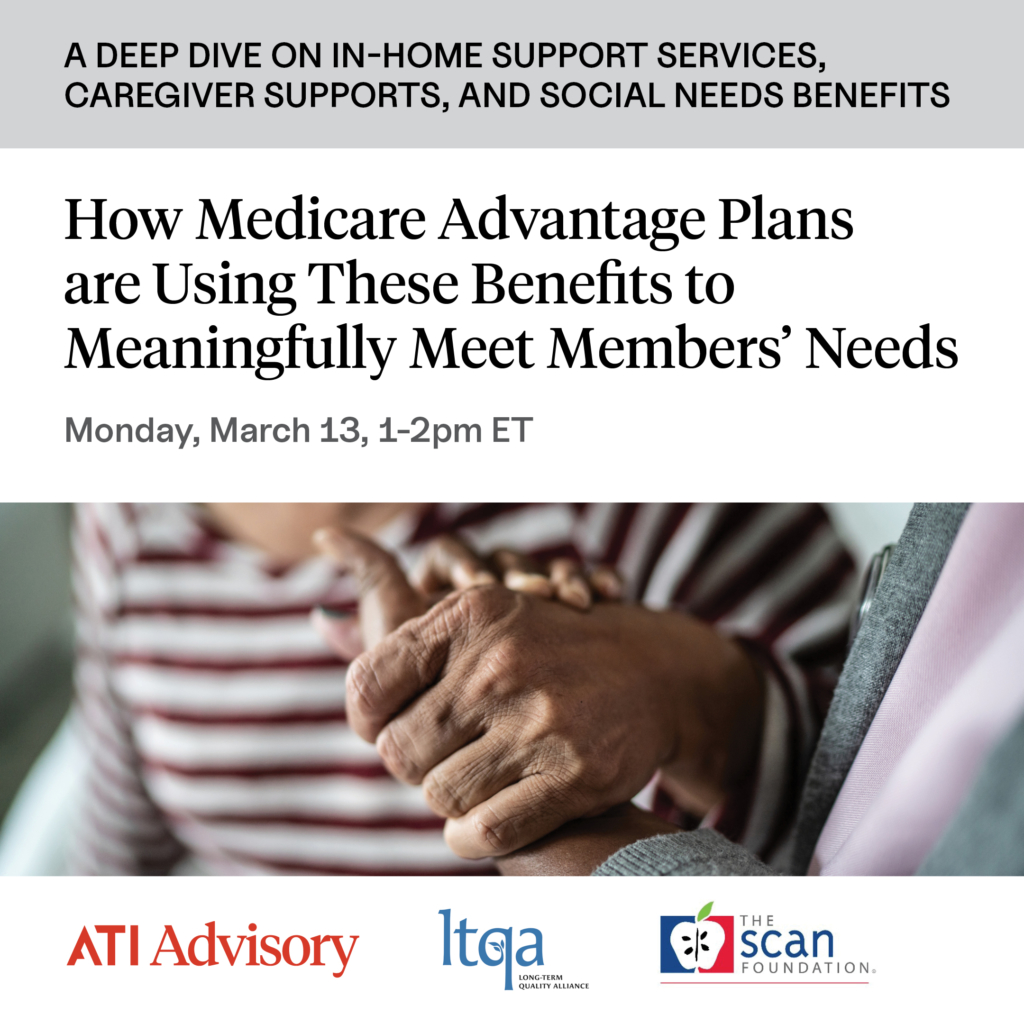

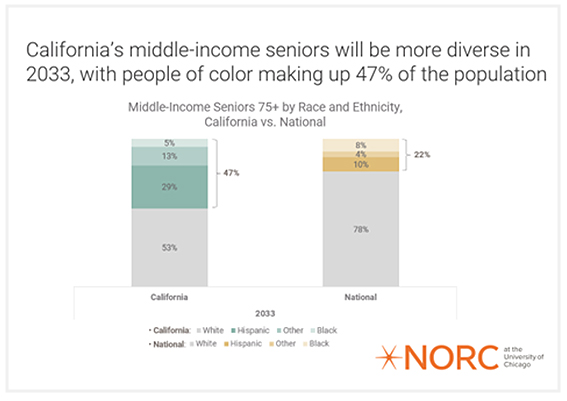
 More than one-third of older adults worry about paying for health care and long-term care. Middle-income older adults, coined the “forgotten middle,” are in the particularly precarious position of being ineligible for Medicaid assistance, yet still have difficulty affording out-of-pocket costs.
More than one-third of older adults worry about paying for health care and long-term care. Middle-income older adults, coined the “forgotten middle,” are in the particularly precarious position of being ineligible for Medicaid assistance, yet still have difficulty affording out-of-pocket costs.